

America’s love of Mexican food has implanted plenty of Spanish words into our everyday lexicon. But when not ordering a quesadilla or tamale at the local taquería, we may still be using Spanish words without even knowing it. (Spanish isn’t the only language that has influenced English. Here are 30 English words you didn’t know came from Arabic.)
The Spanish origins of many words commonly used in the United States can be traced to the 16th century, when Spanish influence in the Americas began. Spanish has actually been spoken in North America for longer than English has. In the centuries following the initial Spanish arrival, many areas in what is now the U.S., including Florida, Louisiana, Mississippi, and Alabama were colonized by Spain.
In addition, several states from California to Oklahoma were part of Mexico until the Mexican-American War. This gave the Spanish language countless opportunities to rub off on American English. Even the names of some of these states – like Colorado (meaning “red-colored”) and Nevada (meaning “snowfall”) – are Spanish.
To compile a list of some common English words that are really Spanish – either spelled exactly the same way, usually with the same meaning, or drawn from a similarly spelled Spanish term – 24/7 Tempo consulted the Oxford English Dictionary and language sites including Babbel, ThoughtCo., and Busuu. We have omitted familiar culinary terms.
Many of these words – including lariat, bronco, and ranch – are derived from the Spanish equestrian tradition that would become U.S. cowboy culture. Others are the names of plants and animals that are common south of our border. (Many Spanish words are based on Latin, the language that Spanish descended from. Here are 30 Latin phrases that everyone should know.)
Click here to see 30 common English words you didn’t know were really Spanish

Alligator
> Spanish origin: El lagarto
> Meaning in Spanish: The lizard
[in-text-ad]

Banana
> Spanish origin: Banana
> Meaning in Spanish: Banana

Bonanza
> Spanish origin: Bonanza
> Meaning in Spanish: Prosperity, bonanza

Breeze
> Spanish origin: Brisa
> Meaning in Spanish: Breeze, air
[in-text-ad-2]
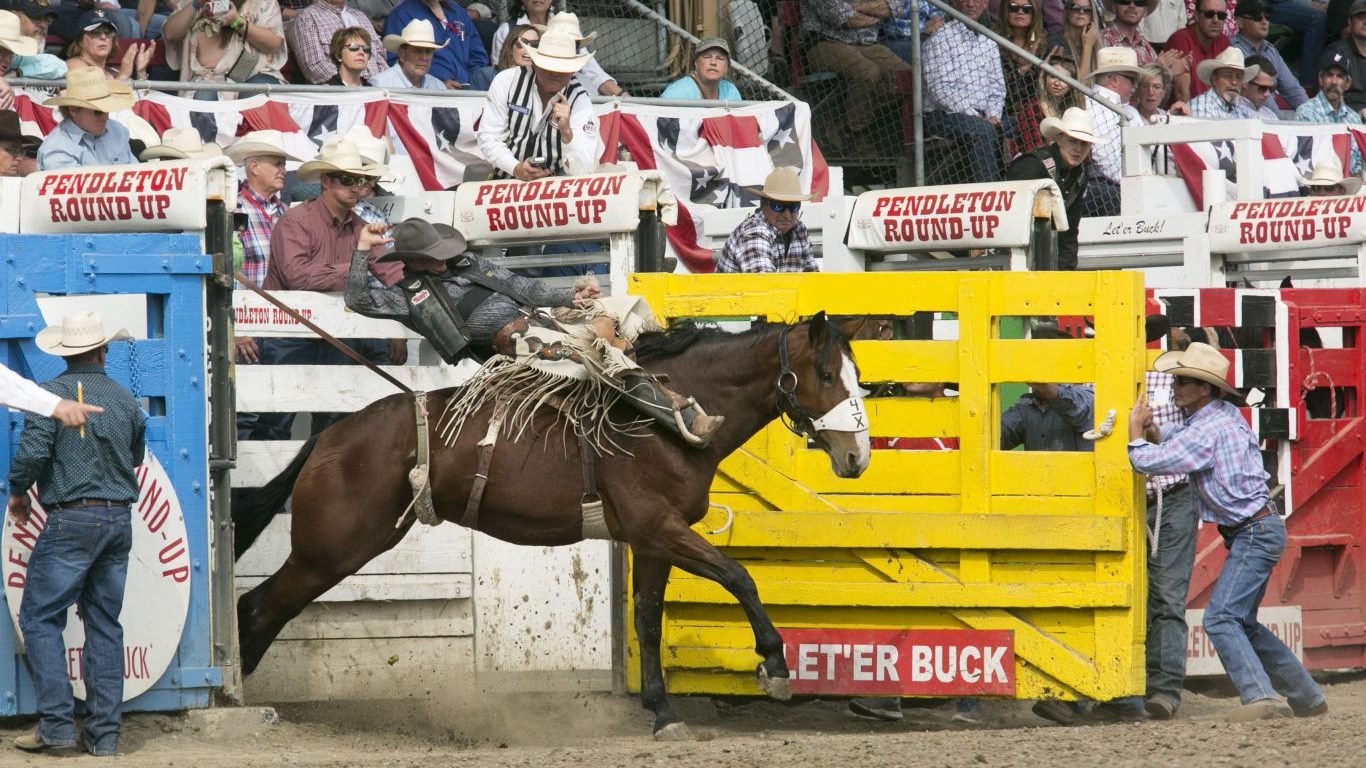
Bronco
> Spanish origin: Bronco
> Meaning in Spanish: Rough

Cabana
> Spanish origin: Cabaña
> Meaning in Spanish: Cabin
[in-text-ad]

Cafeteria
> Spanish origin: Cafetería
> Meaning in Spanish: Café, coffee shop

Cannibal
> Spanish origin: Caníbal
> Meaning in Spanish: Cannibal
Canyon
> Spanish origin: Cañón
> Meaning in Spanish: Gorge, tube
[in-text-ad-2]

Cargo
> Spanish origin: Cagar
> Meaning in Spanish: To load
Cockroach
> Spanish origin: Cucaracha
> Meaning in Spanish: Cockroach
[in-text-ad]
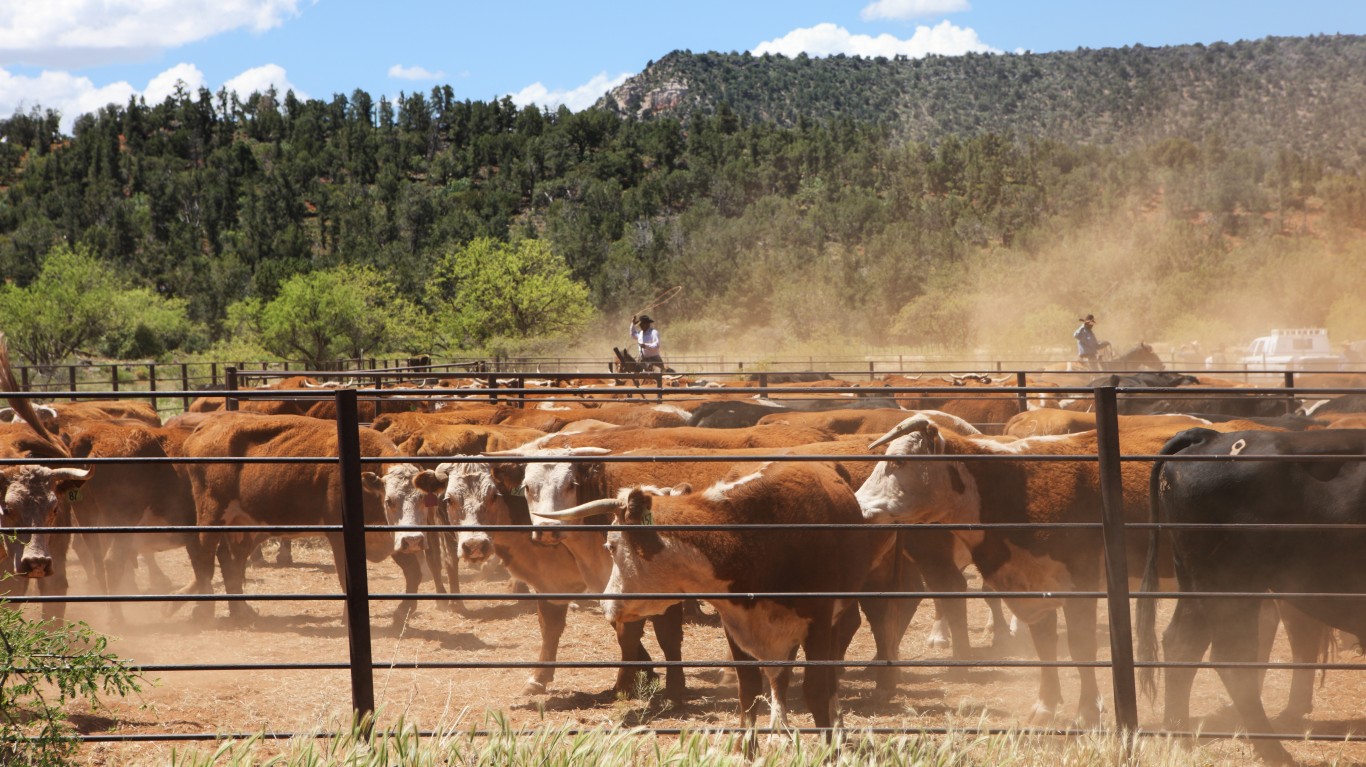
Corral
> Spanish origin: Corral
> Meaning in Spanish: Corral, pen, barnyard

Embargo
> Spanish origin: Embargar
> Meaning in Spanish: To seize
Guerrilla
> Spanish origin: Guerrilla
> Meaning in Spanish: Guerrilla, warfare
[in-text-ad-2]
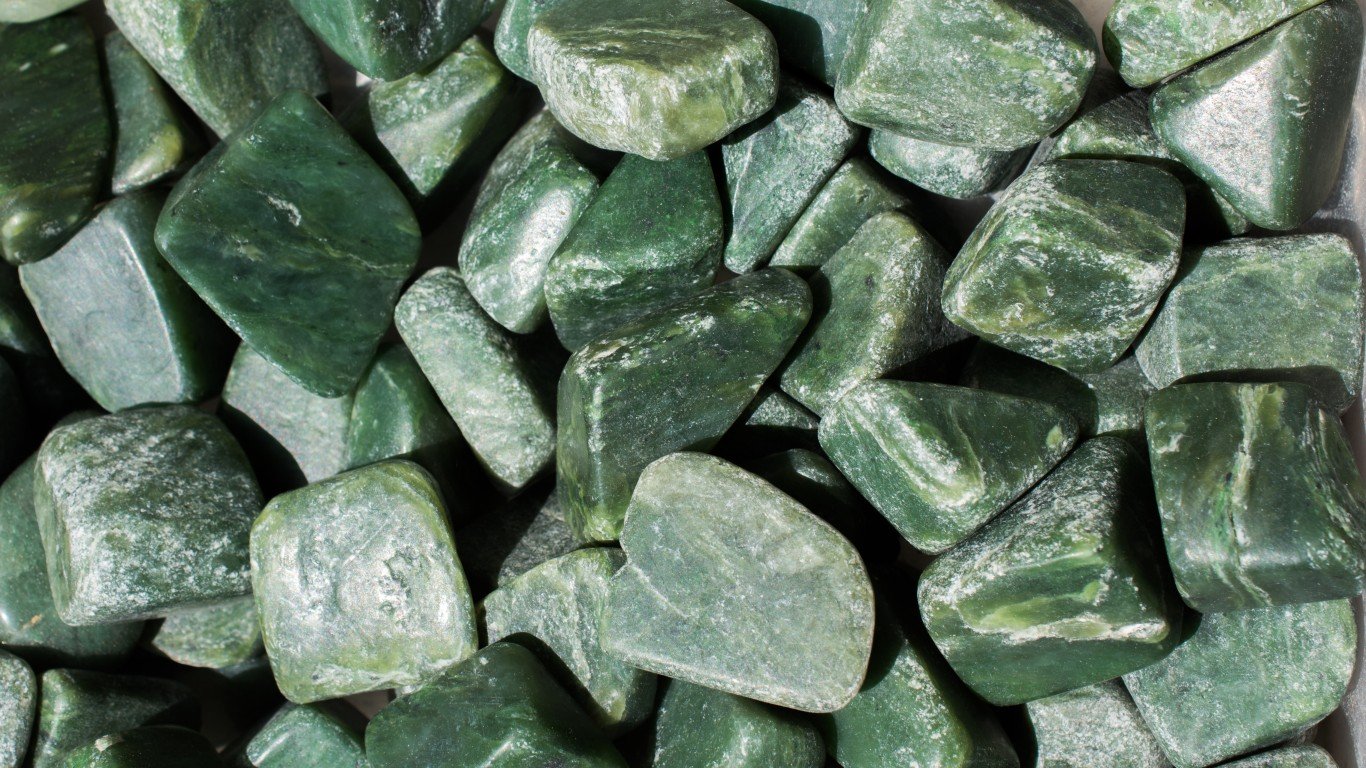
Jade
> Spanish origin: Piedra de ijada
> Meaning in Spanish: Stone of the flank (jade was thought to cure pains in the side)

Lariat
> Spanish origin: La reata
> Meaning in Spanish: The lariat or rope
[in-text-ad]

Marijuana
> Spanish origin: Marihuana (Mexican Spanish)
> Meaning in Spanish: Marijuana, cannabis

Mosquito
> Spanish origin: Mosquito
> Meaning in Spanish: Little fly or gnat
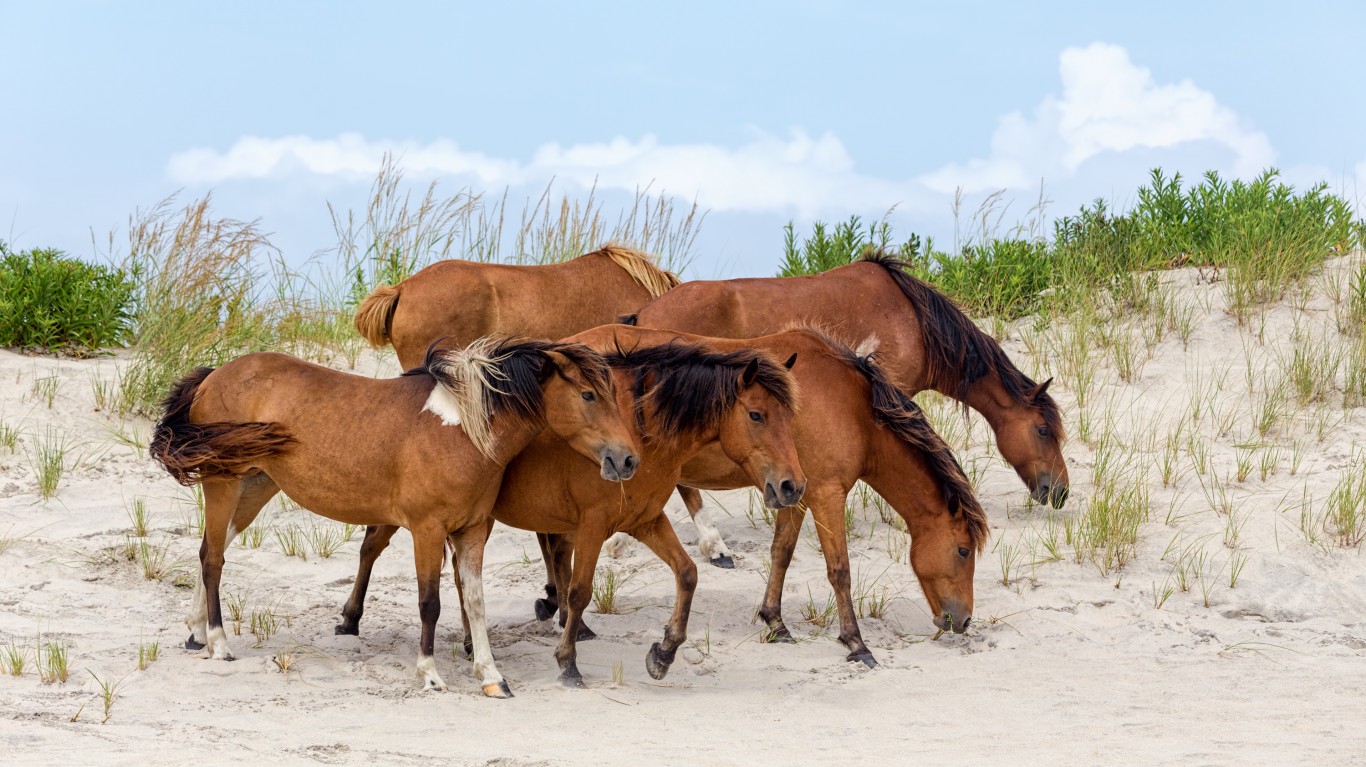
Mustang
> Spanish origin: Mestengo (archaic Mexican Spanish)
> Meaning in Spanish: Stray, wild
[in-text-ad-2]

Patio
> Spanish origin: Patio
> Meaning in Spanish: Patio, courtyard

Platinum
> Spanish origin: Platino
> Meaning in Spanish: Little silver
[in-text-ad]

Plaza
> Spanish origin: Plaza
> Meaning in Spanish: Square, plaza

Ranch
> Spanish origin: Rancho
> Meaning in Spanish: Ranch

Renegade
> Spanish origin: Renegado
> Meaning in Spanish: Turncoat, heretic
[in-text-ad-2]

Savvy
> Spanish origin: Sabe
> Meaning in Spanish: Knows
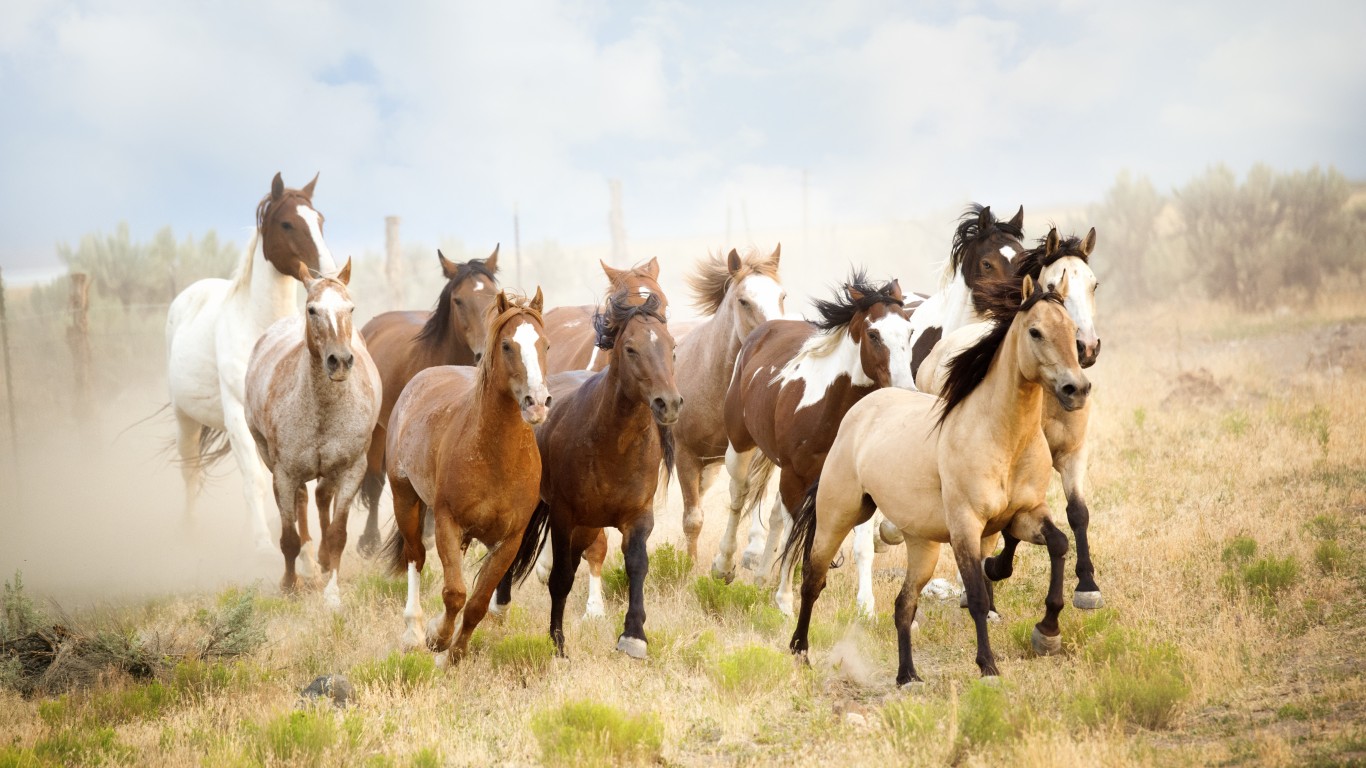
Stampede
> Spanish origin: Estampida
> Meaning in Spanish: Stampede
[in-text-ad]

Suave
> Spanish origin: Suave
> Meaning in Spanish: Smooth
Tornado
> Spanish origin: Tornado
> Meaning in Spanish: Tornado, twister

Vanilla
> Spanish origin: Vainilla
> Meaning in Spanish: Little pod
[in-text-ad-2]
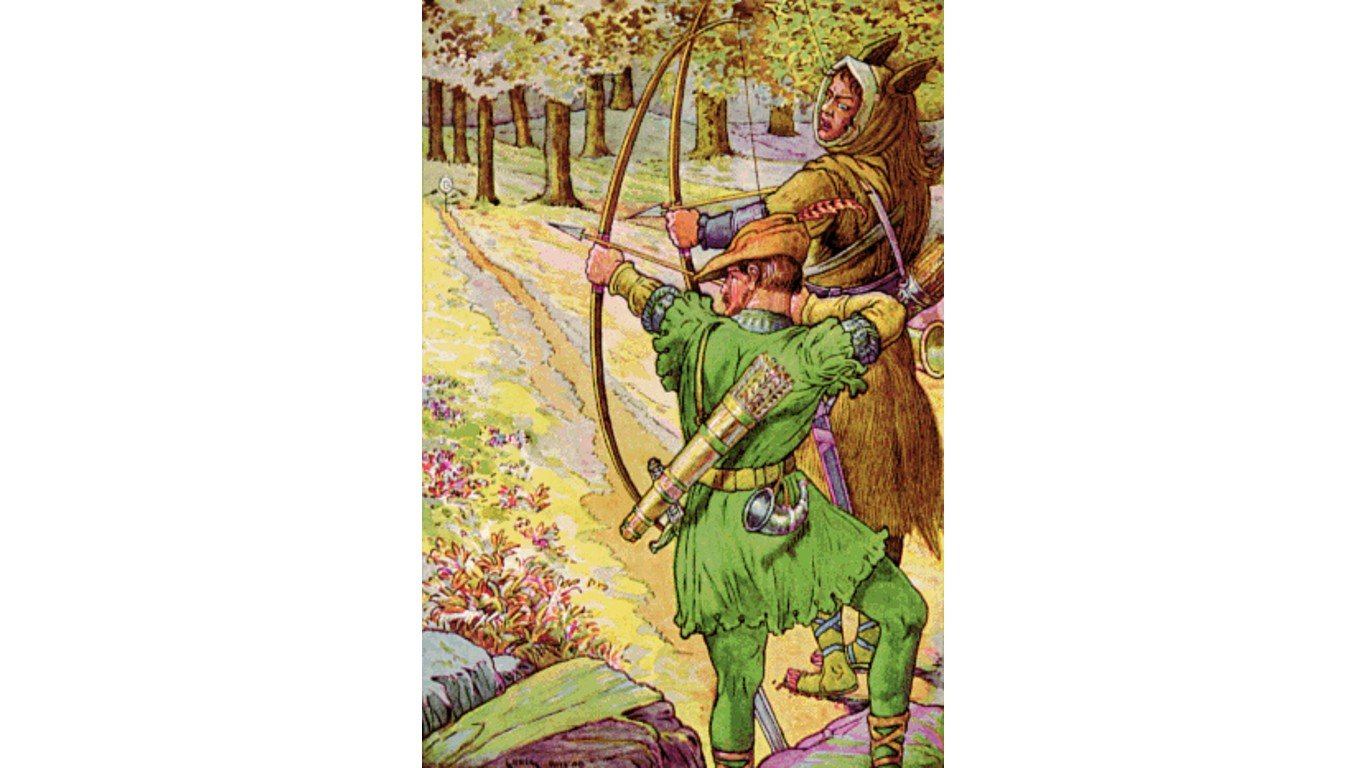
Vigilante
> Spanish origin: Vigilante
> Meaning in Spanish: Watchman
Take This Retirement Quiz To Get Matched With A Financial Advisor (Sponsored)
Take the quiz below to get matched with a financial advisor today.
Each advisor has been vetted by SmartAsset and is held to a fiduciary standard to act in your best interests.
Here’s how it works:
1. Answer SmartAsset advisor match quiz
2. Review your pre-screened matches at your leisure. Check out the
advisors’ profiles.
3. Speak with advisors at no cost to you. Have an introductory call on the phone or introduction in person and choose whom to work with in the future
Take the retirement quiz right here.
Thank you for reading! Have some feedback for us?
Contact the 24/7 Wall St. editorial team.
 24/7 Wall St.
24/7 Wall St.


 24/7 Wall St.
24/7 Wall St.


